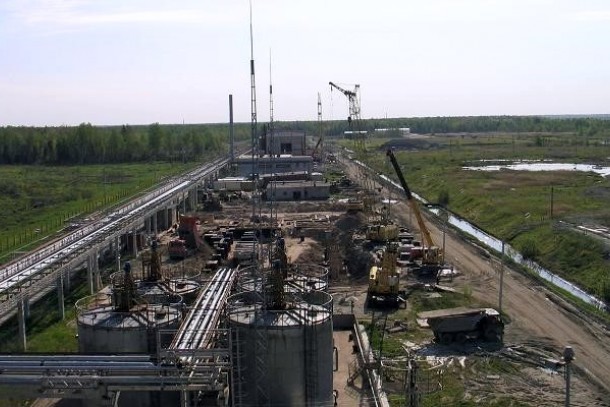26.10.2016 | News

The Baltic Marine Environment Protection Commission’s Pressure Group has decided to call for NEFCO to co-ordinate the clean-up of a toxic waste disposal site in Krasny Bor, Russia. HELCOM’s Pressure Group convenes in Warsaw, Poland 25-27 October. A road map to remediate the site by 2025 was presented at the meeting by a representative of the St. Petersburg administration. Russia also disclosed information highlighting the on-going activities aimed at gathering environmental data at the waste disposal site.
Krasny Bor, last visited by HELCOM experts in June 2016, is a hazardous waste disposal site sorting some 2 million tonnes of hazardous waste and long known as a significant pollution Hot Spot in the region. The area has been built for the reception, disposal and burial of toxic industrial wastes from St. Petersburg and the Leningrad Region. The site was listed as a HELCOM Hot Spot in the early 1990s. Last winter, the weather conditions raised concerns about imminent flooding and leaking of harmful substances from the site to the environment.
The meeting in Warsaw has a high focus on marine litter and hazardous substances in the Baltic Sea. Other meeting topics include underwater noise, dredging, sewage sludge, and internal loading of phosphorus.
The fifth HELCOM Working Group meeting on Reduction of Pressures from the Baltic Sea Catchment Area is hosted by the National Water Management Authority of Poland and chaired by Lars Sonesten from the Swedish University of Agricultural Sciences.
Footnotes
- The list of HELCOM Hot Spots – significant pollution sites around the Baltic Sea – was originally established in the beginning of 1990s, as a part of HELCOM’s efforts to foster international cooperation and coordination to resolve the most acute environmental problems of the Baltic Sea. Since then, three quarters of the Hot Spots have been removed from the list due to systematic mitigation work by the coastal states. Nonetheless, some of the polluting sites still remain on the HELCOM agenda.
- The Pressure Group focuses on nutrient and hazardous substance inputs from diffuse sources and point sources on land, including the follow-up of HELCOM nutrient reduction scheme implementation. The group ensures the necessary technical underpinning and develops solutions for policy-relevant questions and needs. Marine litter and underwater noise are also coordinated by this group. Its official name is the Working Group on Reduction of Pressures from the Baltic Sea Catchment Area.
- Working to safeguard the marine environment from pollution and ensure safe navigation in the Baltic Sea, HELCOM acts as the governing body of the 1974 Helsinki Convention. HELCOM’s official name is the Baltic Marine Environment Protection Commission.